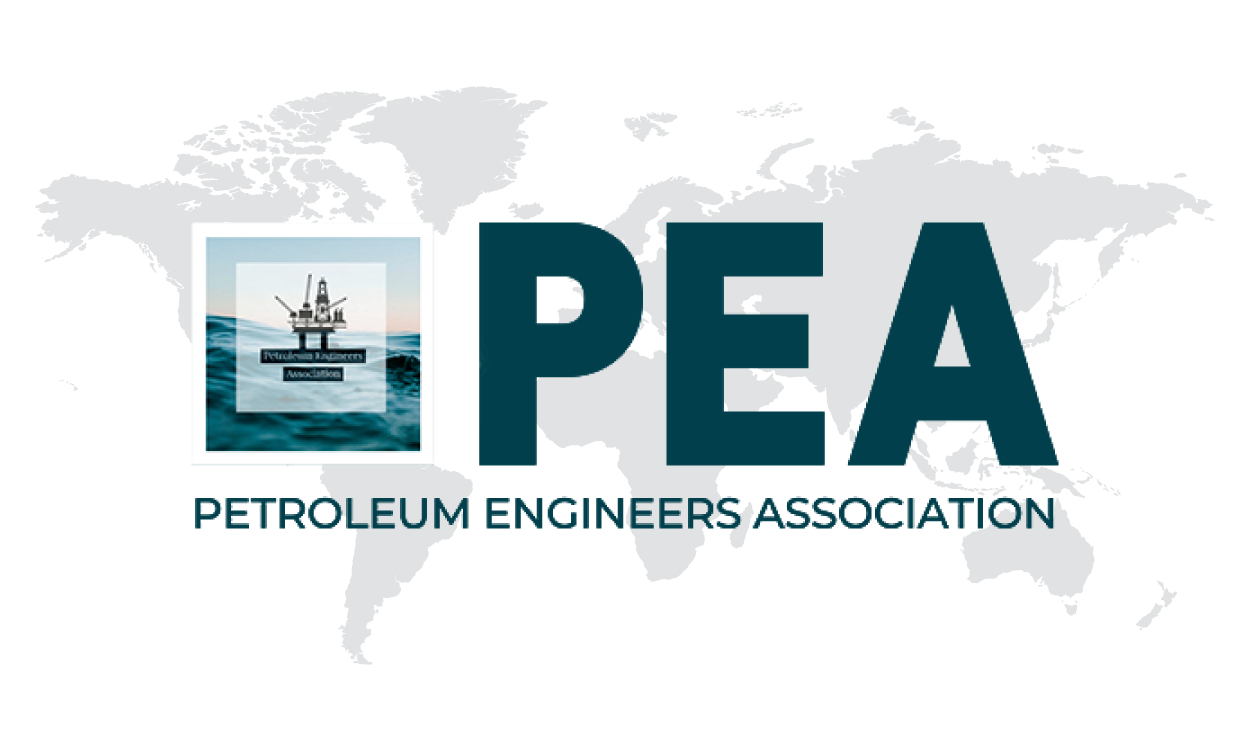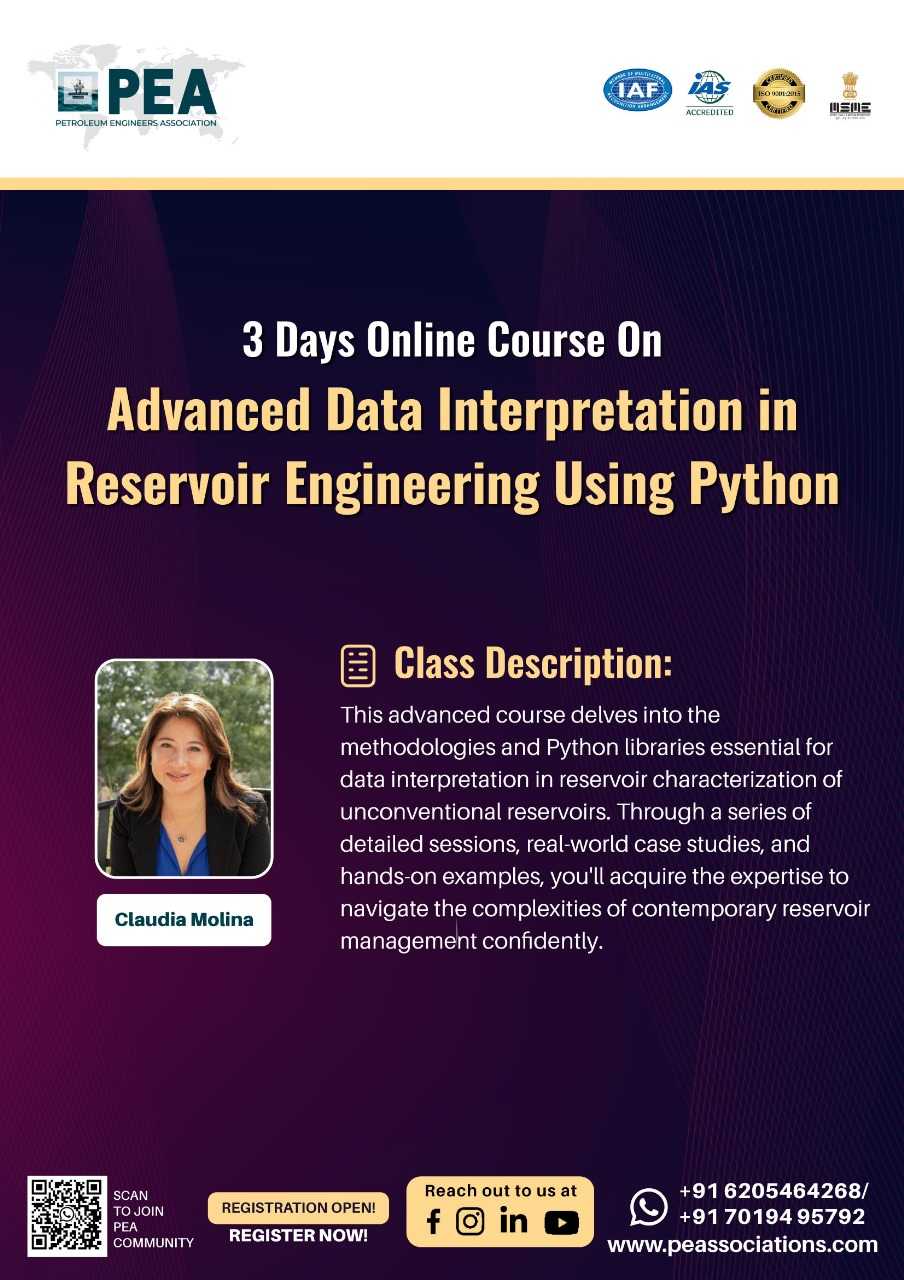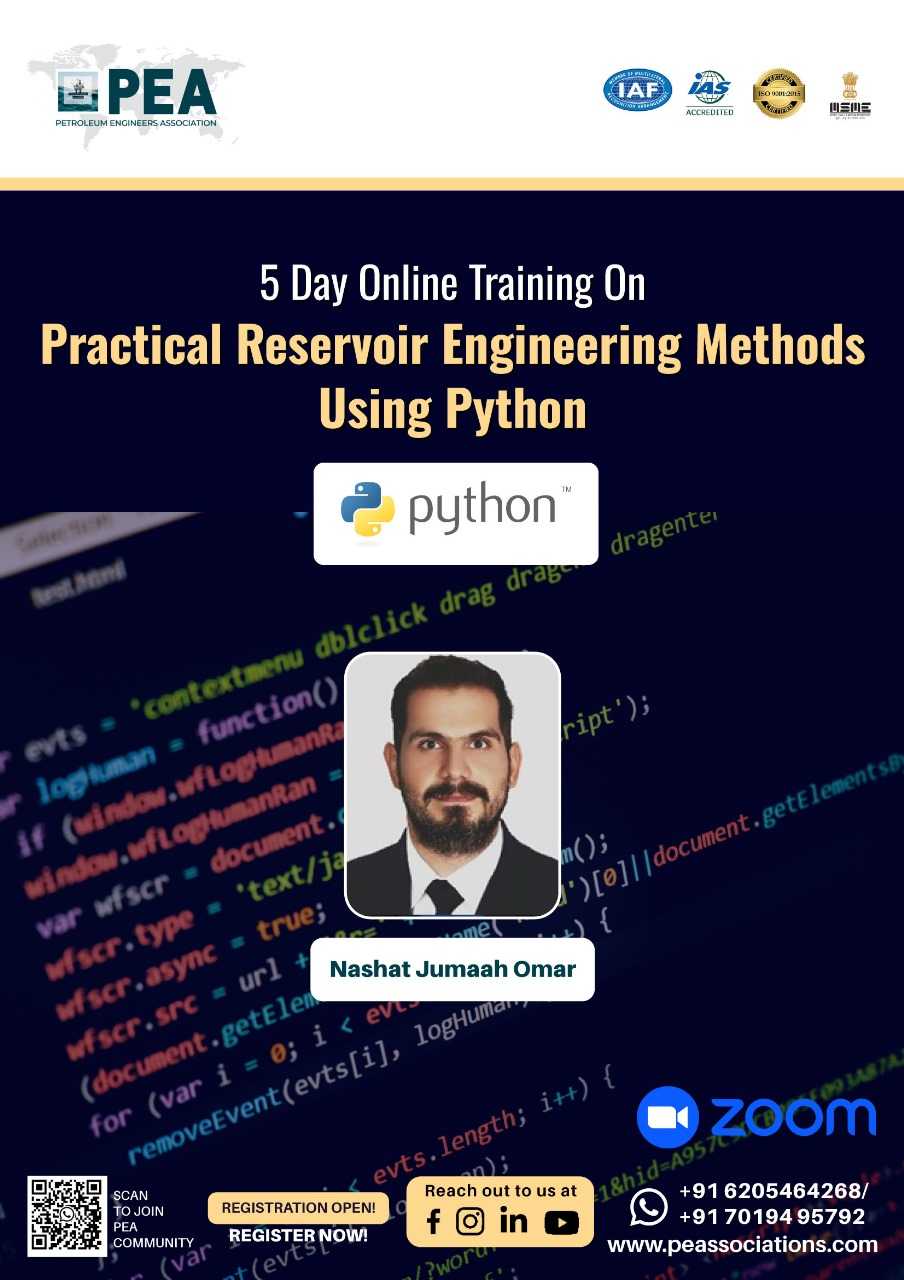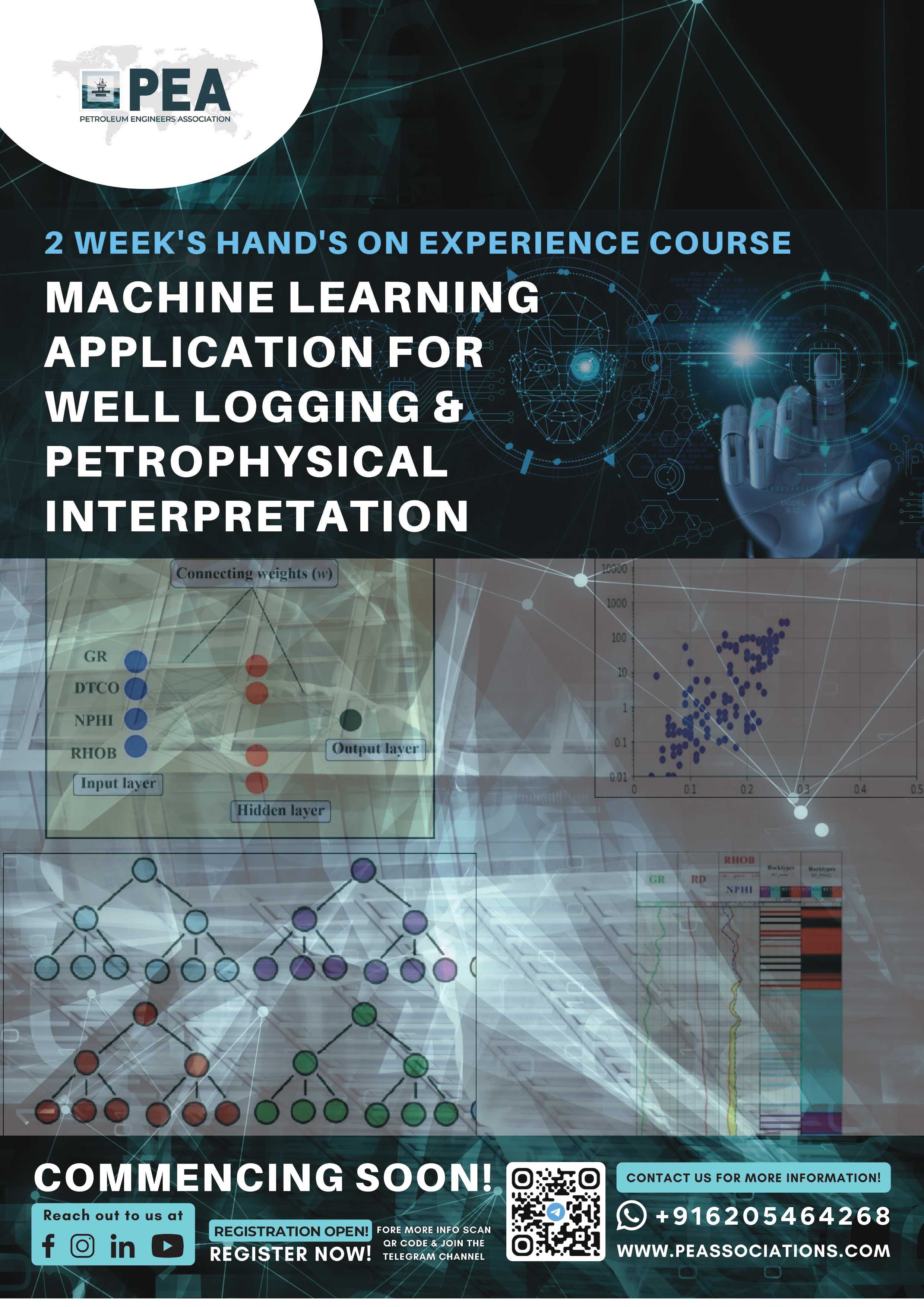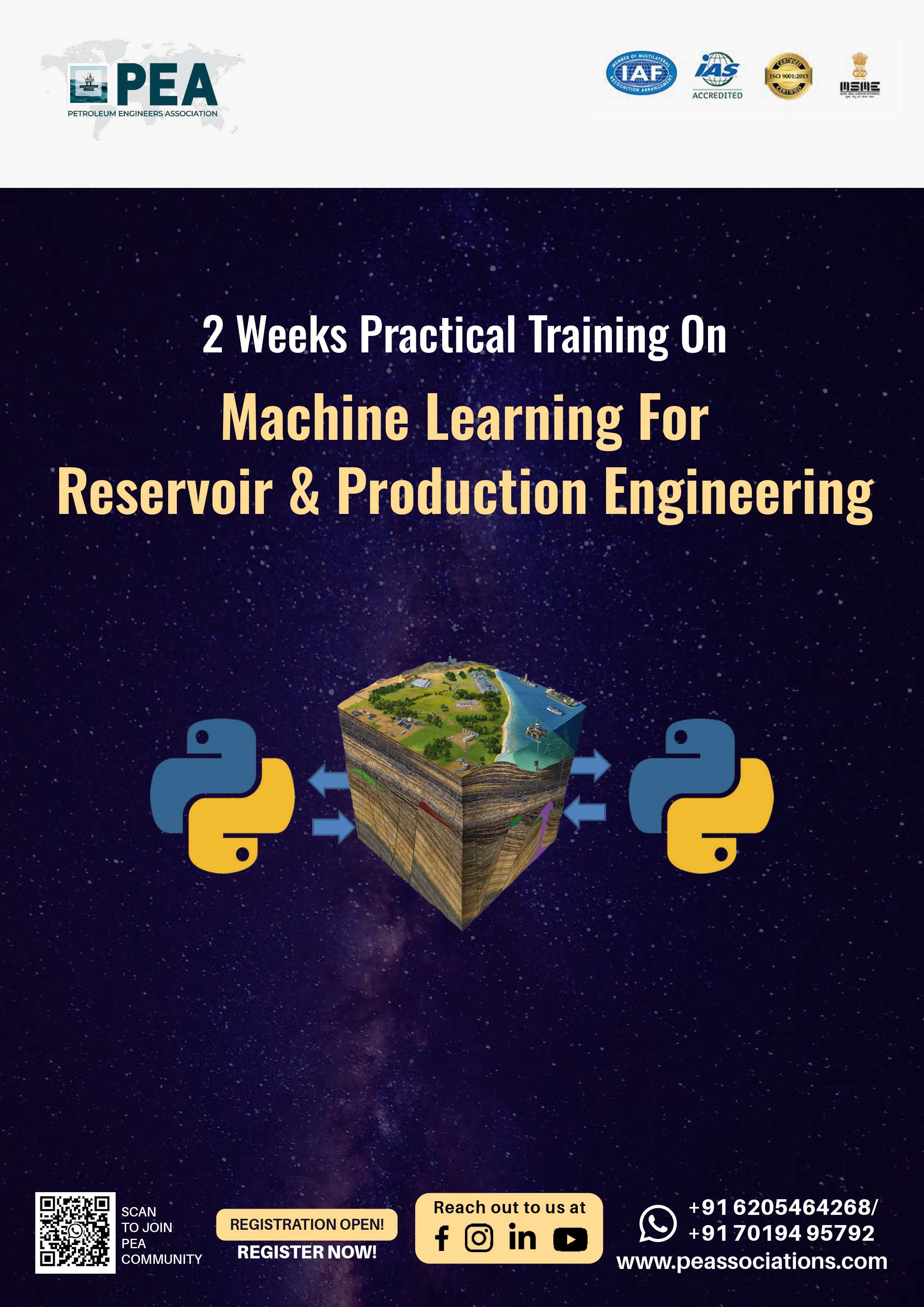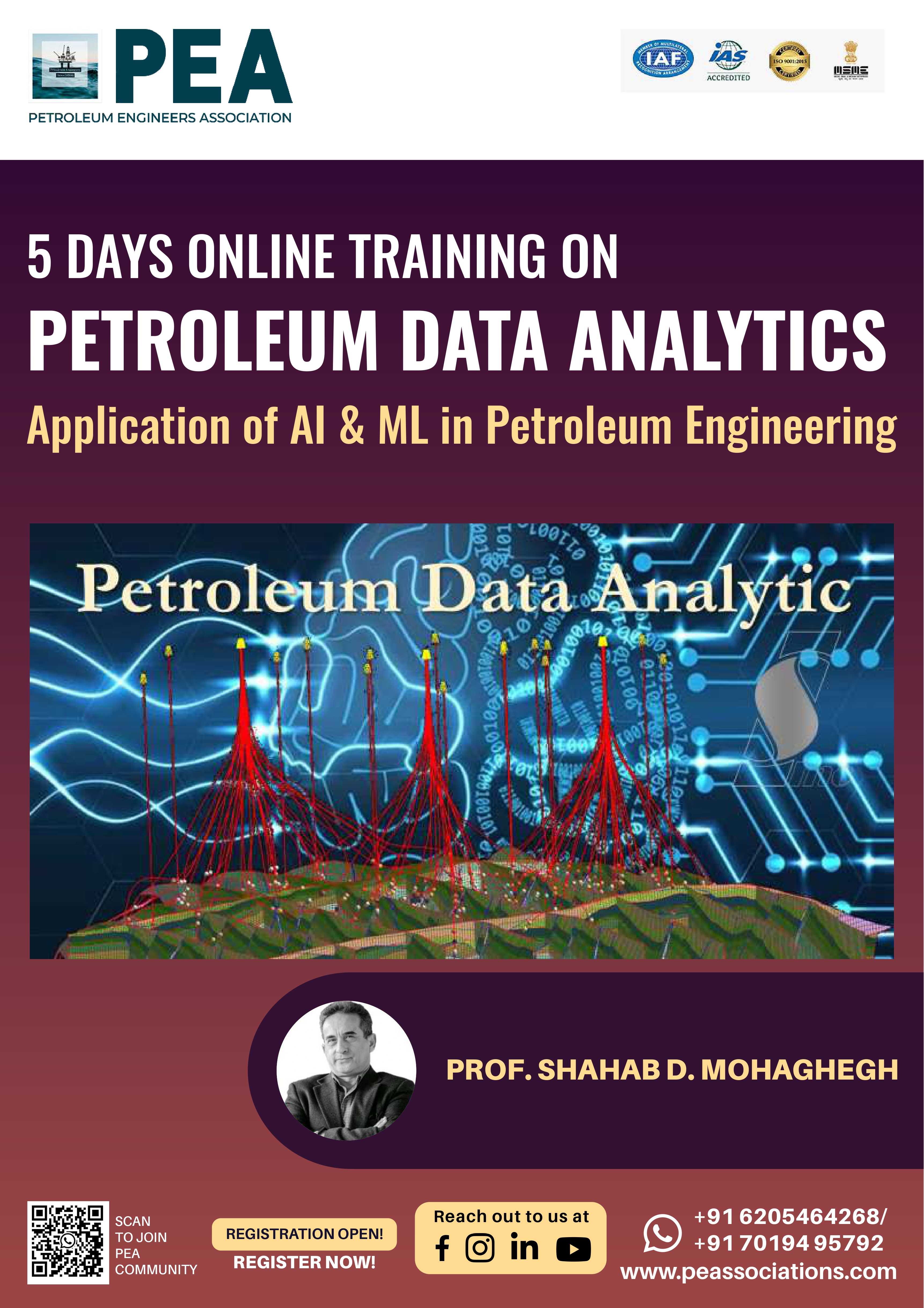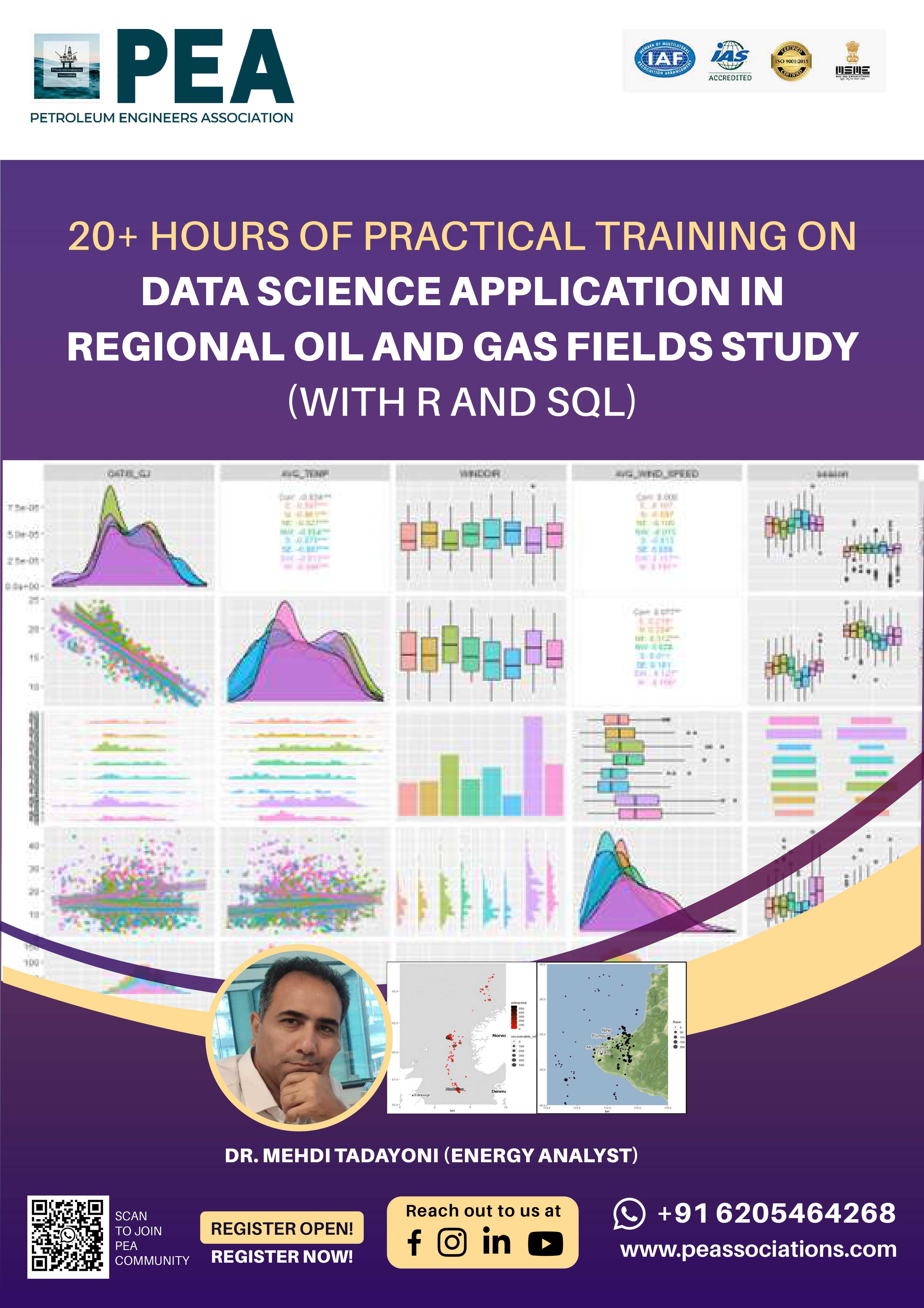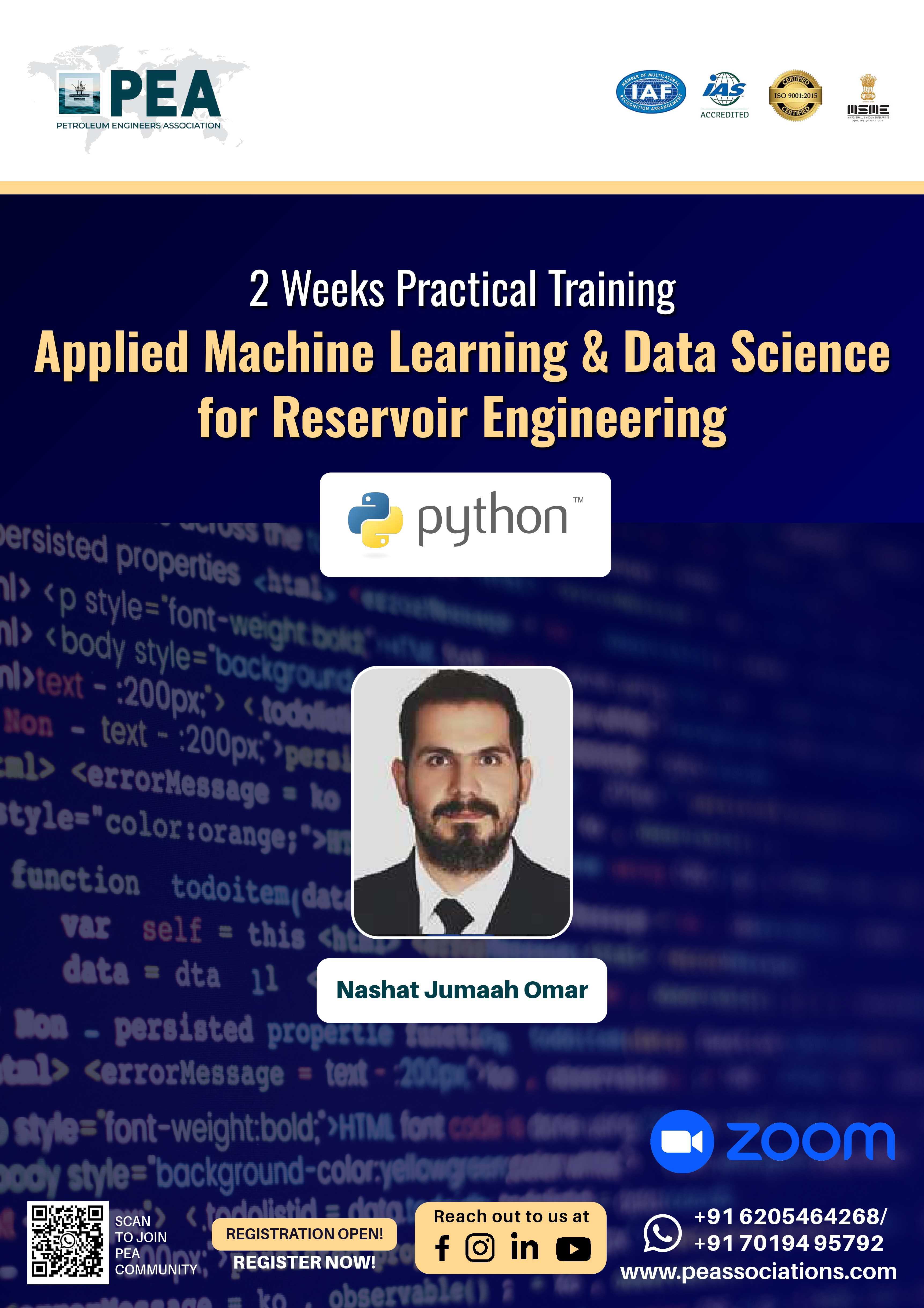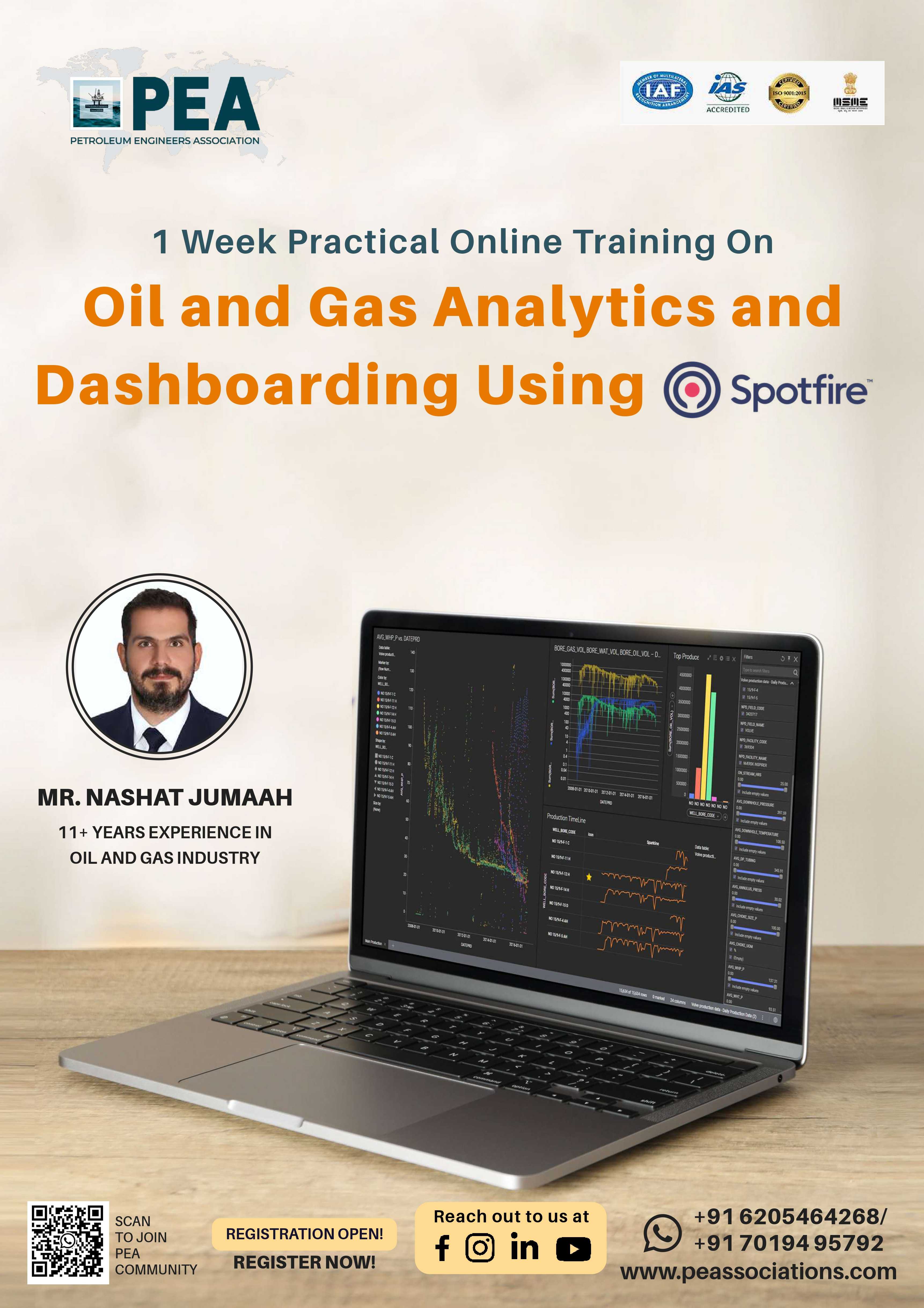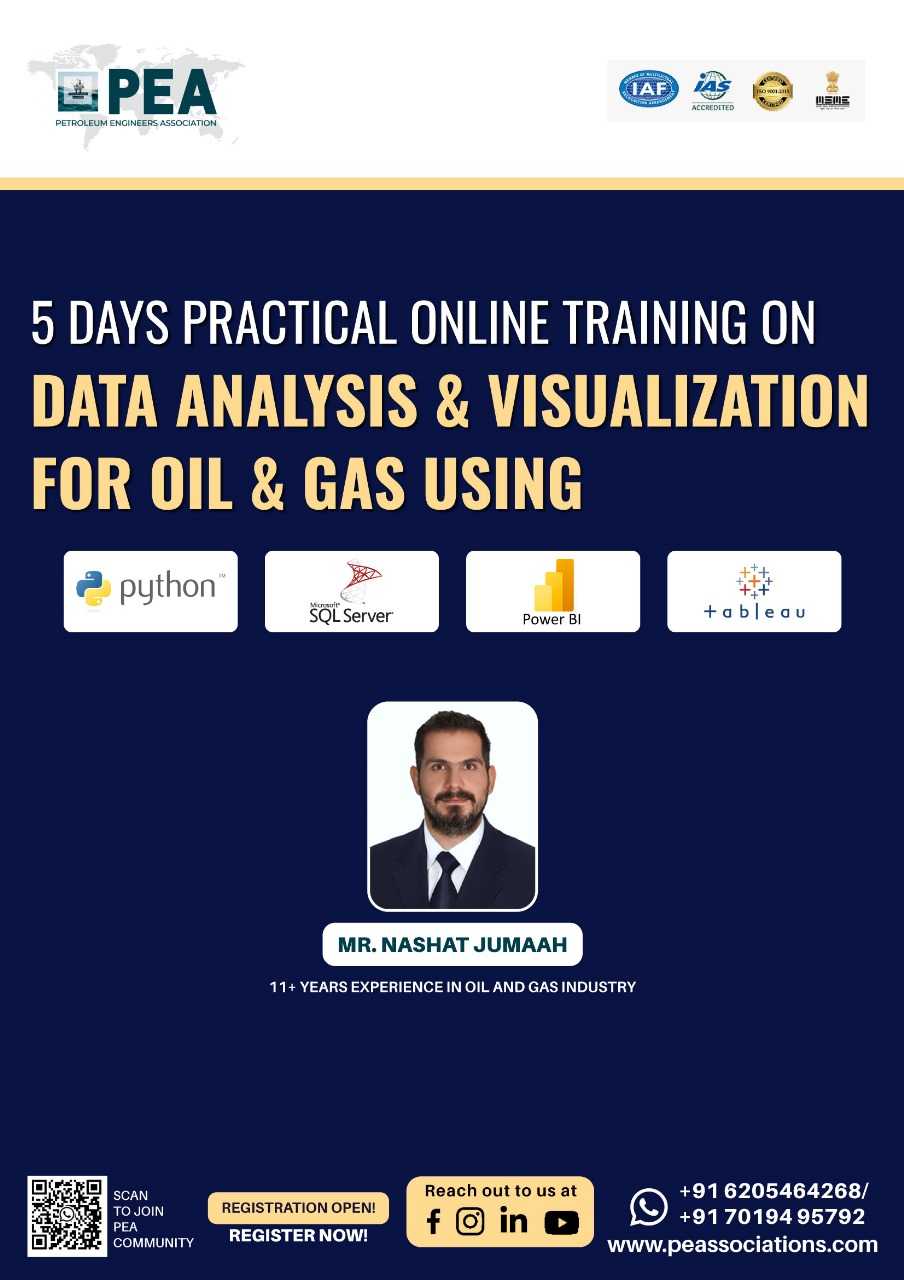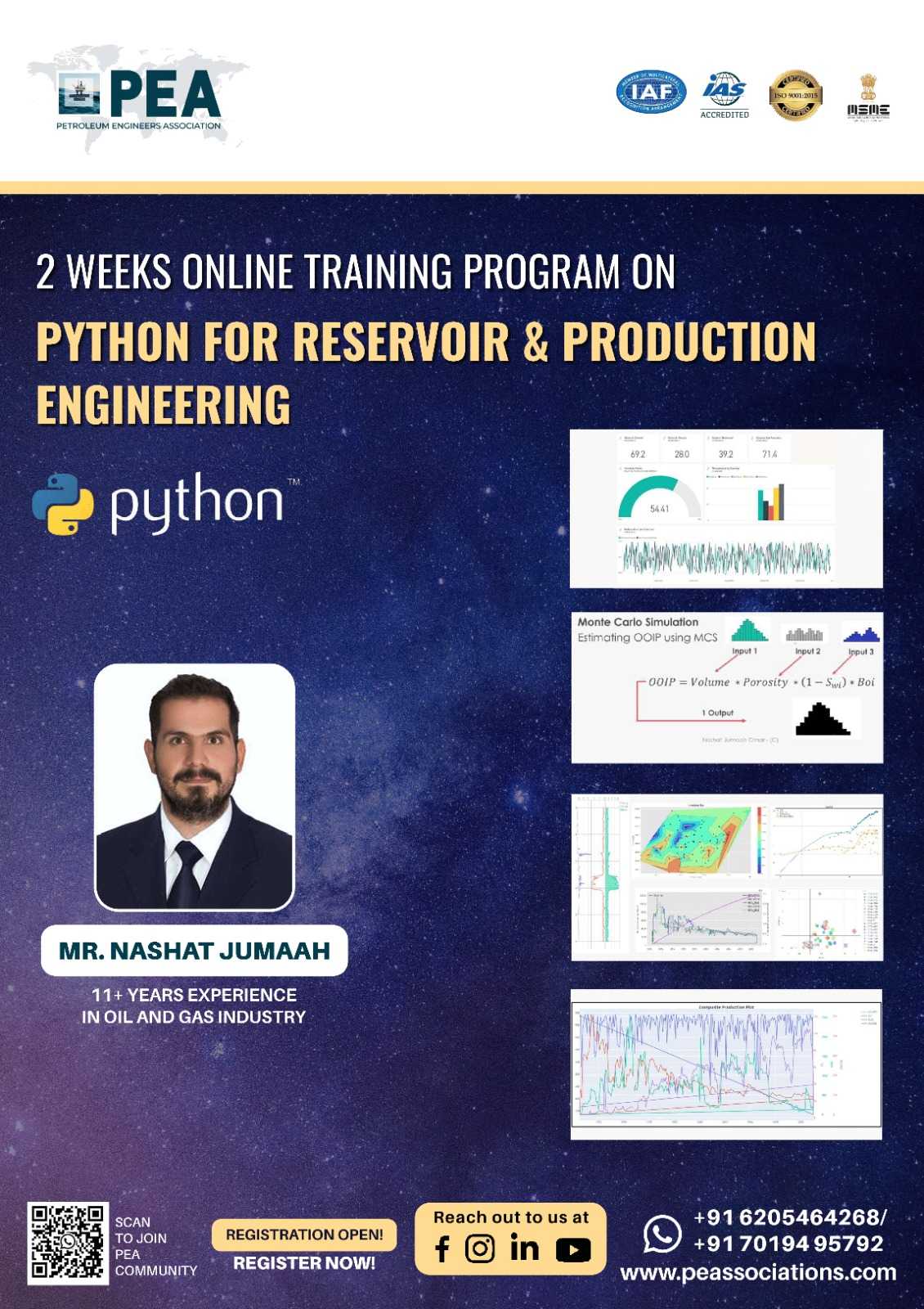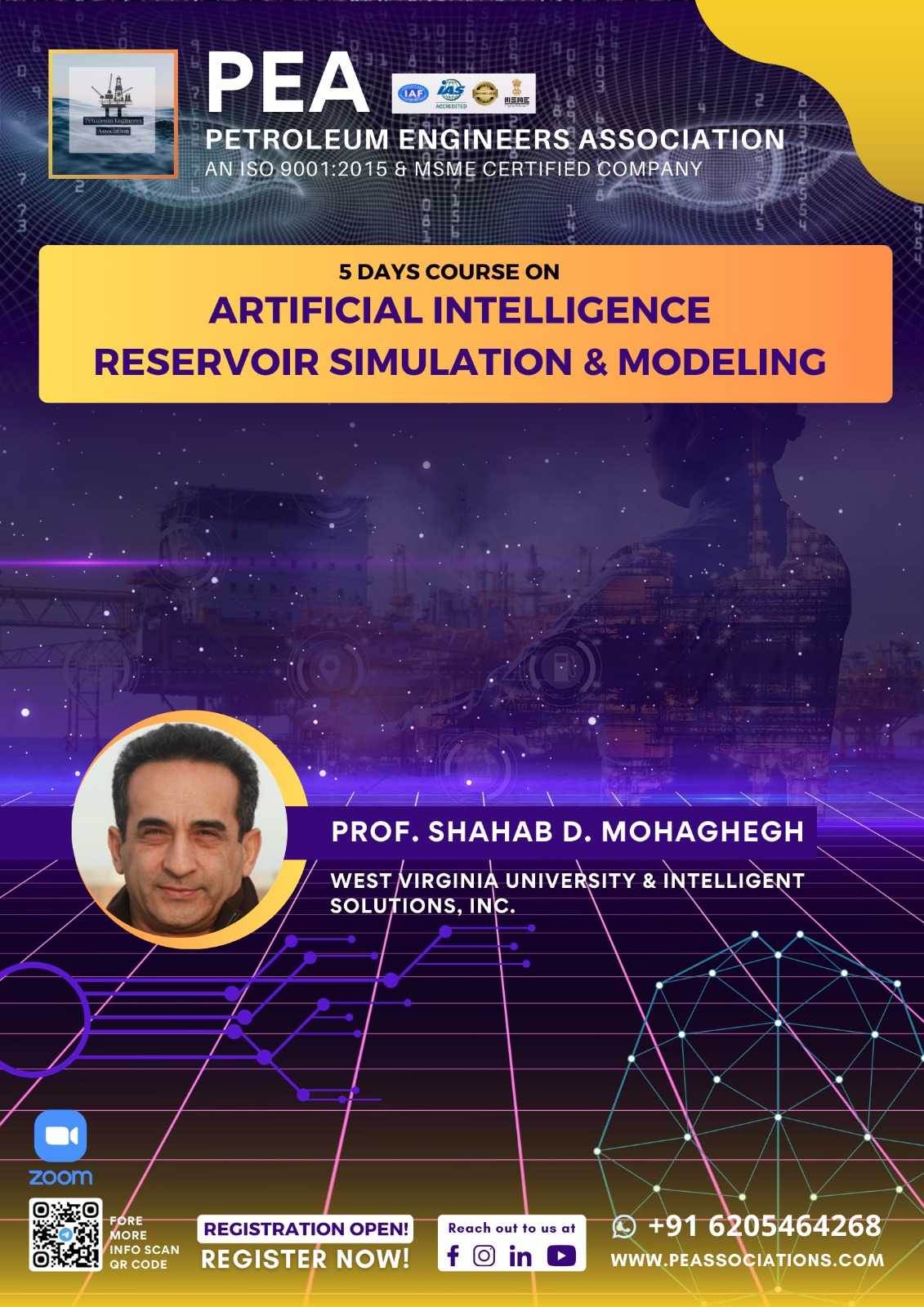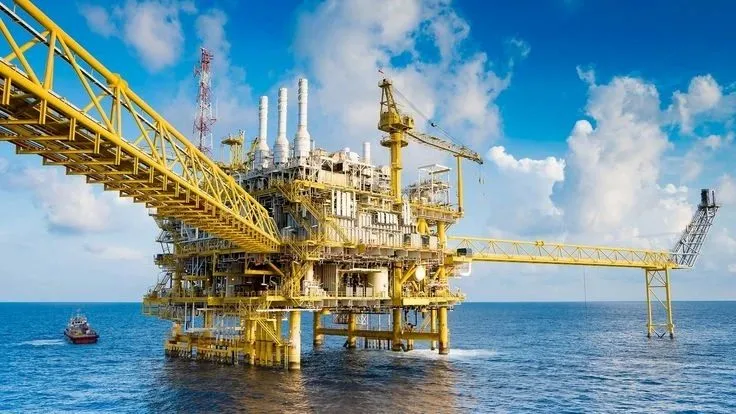| Code | Date | Time | Duration | Location | Currency | Team of 10 Per Person | Team of 7 Per Person | Early Bird Fee Per Person | Normal Fee Per Person |
|---|---|---|---|---|---|---|---|---|---|
| ARP25 | 14 - 16 Jul 2025 | 8 PM Indian Time |
3 Hours Per Day
|
Zoom Online
|
USD
|
850
|
950
|
1150
|
1250
|
The Classes Will be from Monday to Wednesday Via Zoom Online.
Boost your team's skills and your budget! Enjoy group discounts for collaborative learning. Send an inquiry to info@peassociations.com.
Advanced Data Interpretation in Reservoir Engineering Using Python
This course is designed to empower reservoir engineers with advanced data interpretation skills using Python. It focuses on enhancing your ability to analyze, visualize, and make data-driven decisions in reservoir engineering, optimizing production, and improving operational efficiency.
Description
In today's data-driven oil and gas industry, the ability to interpret complex reservoir data accurately is crucial for optimizing production and enhancing decision-making processes. Our "Advanced Data Interpretation in Reservoir Engineering Using Python" course provides a comprehensive understanding of advanced data analysis techniques tailored specifically for reservoir engineering.
Participants will learn how to leverage Python programming to perform sophisticated data interpretation, including data visualization, statistical analysis, and predictive modeling. This hands-on training is designed to bridge the gap between engineering principles and data science, enabling professionals to unlock valuable insights from reservoir data.
Develop advanced skills in Python programming for reservoir data analysis.
Understand data visualization techniques specific to reservoir engineering.
Apply statistical and machine learning methods to enhance data interpretation.
Learn to build predictive models to optimize reservoir performance.
Integrate data science techniques into reservoir engineering workflows for improved decision-making.
The course combines theoretical instruction with practical, hands-on exercises. Participants will work on real-world datasets, applying Python programming to solve complex reservoir engineering problems. Interactive sessions, case studies, and group discussions will be utilized to ensure a thorough understanding of data interpretation techniques.
Improve decision-making processes based on data-driven insights.
Enhance the analytical capabilities of your reservoir engineering team.
Increase efficiency in reservoir performance evaluation and production optimization.
Gain a competitive edge by integrating advanced data analysis into engineering practices.
Foster innovation in reservoir management through the application of Python-based solutions.
Boost your data analysis and Python programming skills in reservoir engineering.
Gain confidence in using data science techniques for complex problem-solving.
Enhance your career prospects by mastering cutting-edge tools and methodologies.
Develop a deeper understanding of data interpretation to make informed decisions.
Strengthen your ability to contribute effectively to data-driven projects in the oil and gas sector.
Reservoir engineers seeking to enhance their data interpretation skills.
Data scientists and analysts in the oil and gas industry.
Production and petroleum engineers involved in reservoir management.
Professionals aiming to integrate Python-based data analysis into their workflows.
Anyone interested in advancing their knowledge of data science in reservoir engineering.
Module 1: Integration and
Interpretation Techniques, 4hrs
Session
1: Fundamentals of Data Integration
Sources and Quality of data
○ Importance of integrating
pressure, rate, and formation data
i.
Challenges and benefits
ii. Sources of data
○ Gathering reliable data from
well tests and reservoir monitoring
i.
Quality control and validation
ii. Exploratory data analysis concepts
Practice: Exploratory Data Analysis (EDA) in Python and Colab
Break (15 mins)
Session
2: Data Integration and Interpretation Techniques
○ Integrating formation and
fluid data with well test results
○ Bottomhole pressure and
multiphase rate data measurements.
○ Overview of bottomhole
pressure correlations.
Practice:
Bottomhole pressure calculation examples in Python
○ Wrap-up, day 1
Module 2: Integration and
Interpretation Techniques, 4 hrs
Pressure-Transient Analysis (PTA)
○ Overview of PTA for unconventional reservoirs.
○ Use cases: Drawdown and buildup tests.
Rate-Transient Analysis (RTA)
○
Overview of RTA for unconventional reservoirs.
○ Forecasting production behavior using RTA methods
Break (15 mins)
Integrated Pressure-Rate
Analysis
○ Combining PTA and RTA for
comprehensive reservoir characterization
○ Case study 1: ‘Pressure
buildup in unconventional reservoirs: friend or foe?.’
Group discussion: Insights from examples and use cases, key issues and opportunities.
Session 4: Real-World
Applications, Emerging Trends and Future Developments
○ Lessons learned and best
practices
○ Future developments in
reservoir interpretation
Wrap-
up
On successful completion of this training course, PEA Certificate will be awarded to the delegates

Claudia Molina has over 20 years of experience in engineering, business, and data science in the upstream oil and gas sector, with a focus on complex reservoir systems.
Expertise in subsurface dynamics and evaluating new technologies to optimize production processes.
Skilled in numerical and data-driven modeling solutions for reservoir management, including 3D numerical modeling, RTA, and PTA methods for unconventional reservoirs.
Holds a Master's in Data Science from Harvard, an MBA, and a Petroleum Engineering degree from the University of Oklahoma.

